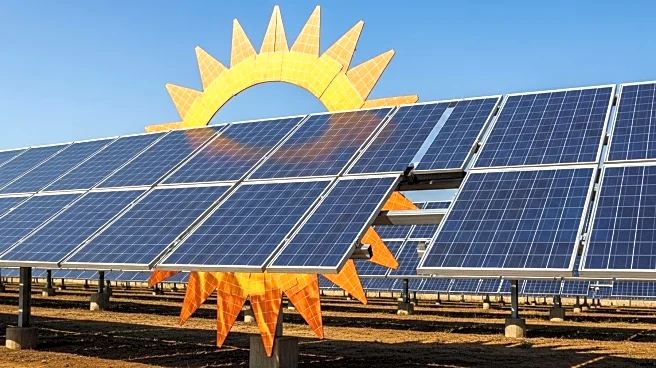What is the story about?
What's Happening?
India's solar industry is experiencing growth despite U.S. tariffs on Indian goods. The country is ramping up solar manufacturing, driven by government policies that restrict imports and incentivize domestic production. ReNew, a major solar manufacturer, has doubled its capacity to produce solar components, aiming to compete with China. The U.S. tariffs, imposed by President Trump, have affected Indian exports, but domestic demand for solar power is helping mitigate the impact. Energy analysts suggest that India's clean energy targets and local demand will support the industry even if U.S. sales decline.
Why It's Important?
The development of India's solar industry is significant for global clean energy efforts, as India is one of the largest carbon emitters. By increasing domestic production, India reduces reliance on imports, particularly from China, and strengthens its position in the global solar market. The U.S. tariffs pose challenges, but India's focus on domestic consumption and ambitious renewable energy goals could lead to long-term sustainability and growth. This shift may influence global solar supply chains and encourage other countries to adopt similar strategies.
What's Next?
India plans to continue expanding its solar manufacturing capabilities, with government initiatives aimed at reducing dependency on imported materials. The country has set a target of 500 gigawatts of renewable energy by 2030, primarily through solar projects. As the industry grows, India may need to address infrastructure challenges related to mining and processing raw materials. The impact of U.S. tariffs will be monitored, with potential changes depending on legal outcomes and policy shifts in the U.S.















